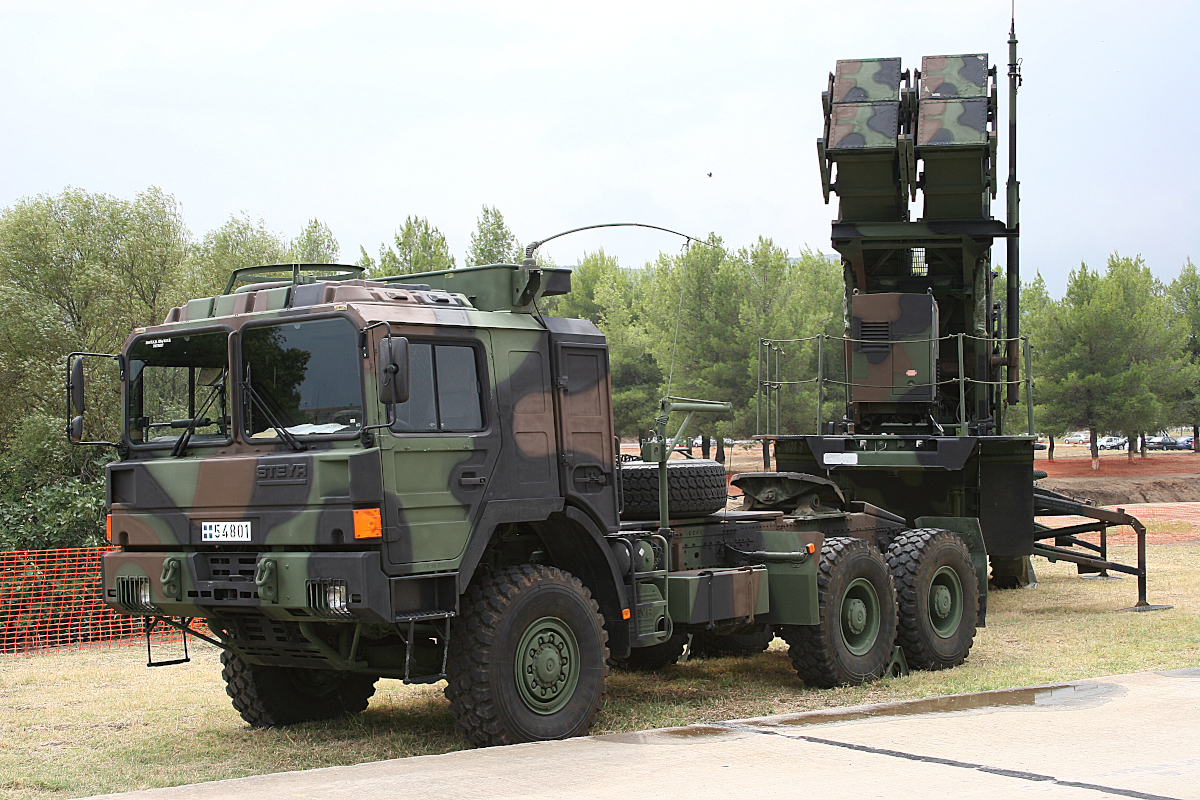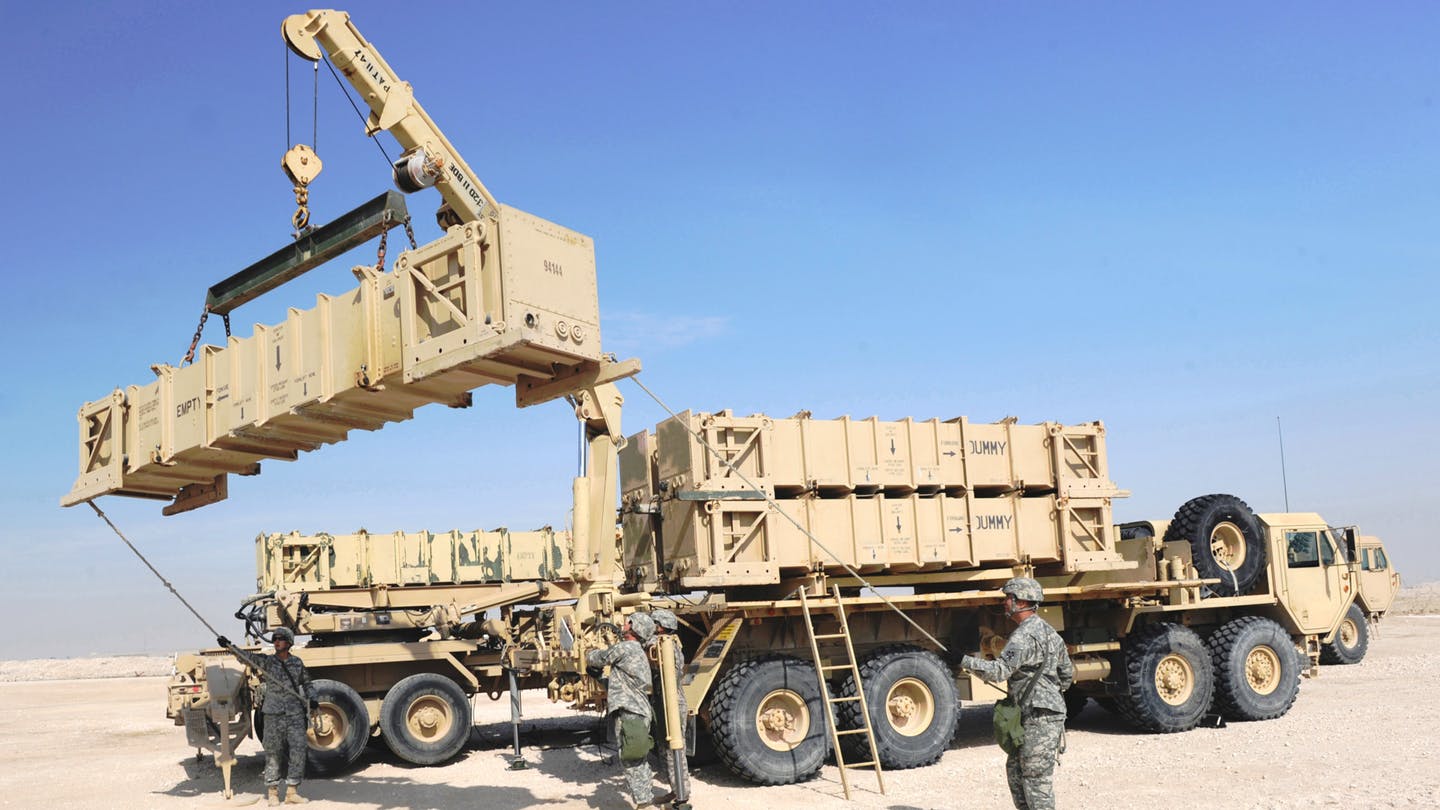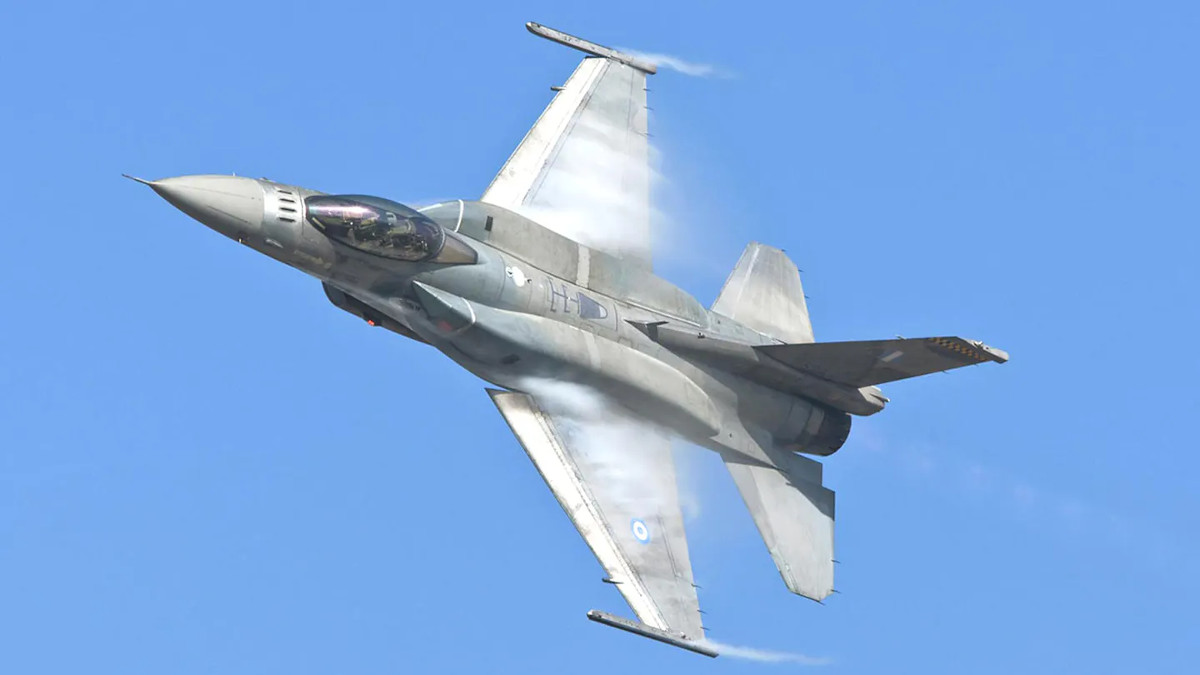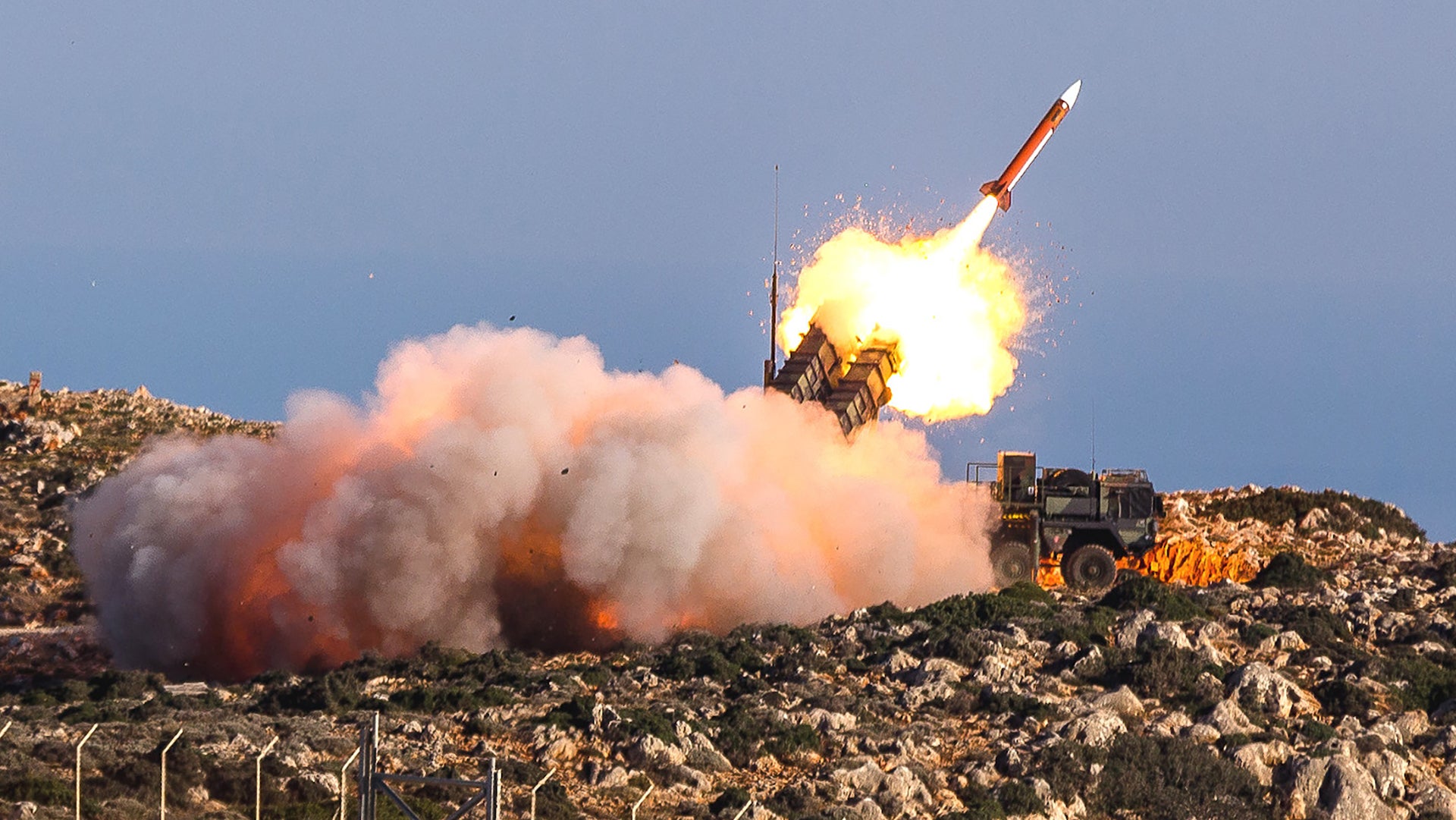Greece says it is preparing to deploy a Patriot surface-to-air missile system unit to Saudi Arabia to help protect the Kingdom’s oil infrastructure. This news comes amid reports that the U.S. military is trying to get approval from Iraqi authorities to send Patriots there in the wake of unprecedented Iranian ballistic missile strikes aimed at American personnel in that country last month. That plan could involve moving U.S. Army Patriot units presently in Saudi Arabia into Iraq.
Stelios Petsas, a spokesperson for the Greek government, announced the impending Patriot deployment in an interview on Feb. 3, 2020. He did not say how large the air defense contingent would be or when would actually arrive in Saudi Arabia, but said that the government in Riyadh was underwriting operation, which is “to protect critical energy infrastructure.” The Greek military has six squadrons of Patriot PAC-3 surface-to-air missile systems, all of which are assigned to the Hellenic Air Force’s 350 Guided Missile Wing.
“The deployment contributes to energy security, promotes our country as a factor of regional stability and strengthens our ties to Saudi Arabia,” Petsas said. “As a defensive system, this constitutes no threat to other countries in the area.”

Petsas added that discussions about sending Greek Patriots to Saudi Arabia first began in October 2019, which is not surprising. The month before, unprecedented suicide drone and cruise missile strikes had caused significant damage to Saudi oil infrastructure.
The Kingdom subsequently said that it believed the strikes were at least “sponsored by Iran,” while the United States accused Iran of directly carrying out the operation. U.S. authorities quickly pledged to help bolster Saudi air and missile defenses and called on its allies and partners to do the same. Petsas said in his interview that France and the United Kingdom were also be planning to send forces to Saudi Arabia and that Italy might be looking to do the same in the future.

Though the Greek deployment has been in the works for months, it could be especially beneficial for the United States now, which is looking to deploy Patriot units to Iraq in the aftermath of the Iranian ballistic missile strikes on facilities where U.S. troops are situated in that country on Jan. 7. Those strikes were in retaliation for the U.S. decision to kill Iranian Quds Force commander Qasem Soleimani outside Baghdad International Airport just days earlier.
The U.S. military did not have Patriots or any other robust air or missile defenses in place in Iraq at the time. This, in turn, has prompted public criticism of this lack of preparedness, especially given the deployment of Patriot units in Saudi Arabia last year.
Given the relatively small size of the U.S. Army’s overall Patriot force, some or all of the four batteries of these surface-to-air missile systems that are present in the Kingdom, which are also tasked with defending “critical military and civilian infrastructure,” may now reportedly get re-deployed into Iraq, if authorities in Baghdad approval the plan. However, Iraqi officials, who were incensed by the unilateral U.S. decision to kill Soleimani on their soil, are still withholding approval for the American air defense deployment. You can read more in detail about why there are still no American Patriot systems in Iraq in this recent War Zone piece.

In addition, Pestas, the government spokesperson, said that Greece’s decision to send its own Patriots to Saudi Arabia is also wrapped up in an array of other geopolitical concerns, most of which are linked to its long-standing rivalry with neighboring Turkey, which has been pursuing a steadily more assertive foreign policy under the administration of the increasingly authoritarian President Recep Tayyip Erdogan in recent years. He explained that the Greek government was “trying to re-energize” its relations with Gulf Arab states, broadly, specifically to a challenge to Turkey’s overseas moves. Greek Prime Minister Kyriakos Mitsotakis is presently in the Middle East on a tour that will take him to both Saudi Arabia and the United Arab Emirates.
The Saudis and Emiratis, among others, also continue to enforce a blockade of neighboring Qatar as part of a bitter political dispute that first erupted in 2017. Since then, the government in Doha has embraced Turkish support, including the deployment of Turkish troops.
At the same time, Turkey has increased its involvement in the civil conflict in Libya and leveraged its relationship with the internationally recognized government in Tripoli to assert claims over significant parts of the Eastern Mediterranean Sea. This Turkish-Libyan agreement on maritime boundaries has prompted a new spat with Greece, along with Egypt, Cyprus, and Israel, among others, all of whom have categorically rejected Ankara’s claims.
Greece and Turkey have other long-standing border disputes and the overall increase in tensions between the two countries has led to an increase in Turkish combat jets reportedly violating Greek airspace. These types of incidents have occurred on and off for decades and have led to reported shootdowns in the past. There have been reports of mock dogfights between Greek and Turkish fighters In some of the more recent cases, as well.

All of this comes as Turkey’s relations with its NATO allies, including Greece, as well as the United States, are at a recent low over various issues, including Ankara’s decision to buy Russian S-400 surface-to-air missile systems, a saga you can read more about here and here. Ankara’s unilateral military intervention into northern Syrian last year, aimed at ejecting U.S.-backed predominantly Kurdish forces from a wide swath of that country, has also strained its relationship with Washington. There have been reports that the United States is finally considering removing its stockpiles of B61 nuclear gravity bombs from Incirlik Air Base in Turkey as a result of the worsening ties between the two countries.
The Turkish government’s subsequent decision to cut a deal with its counterparts in Moscow to patrol a buffer zone in Syria, and to move closer toward the Russian sphere of influence in general, has only compounded these issues. Of course, it is worth noting that, Turkish-Russian relations are now themselves increasingly strained over the Kremlin’s unwillingness or inability to curtail a new Syrian government offensive into areas under the control of Turkish-backed Syrian rebels.
It remains to be seen how Turkey may or may not respond to Greece’s upcoming deployment Patriots to Saudi Arabia and its efforts to reinvigorate ties with the Kingdom, in general. Regardless, it is a clear indication that Turkey’s grand ambitions under Erdogan, especially in the realm of foreign policy, are having complex and far-reaching impacts.
In the meantime, the more immediate impact of the Greek Patriots heading to the Kingdom may be to help the U.S. military free up its own air defense assets for deployment into Iraq.
Contact the author: joe@thedrive.com
